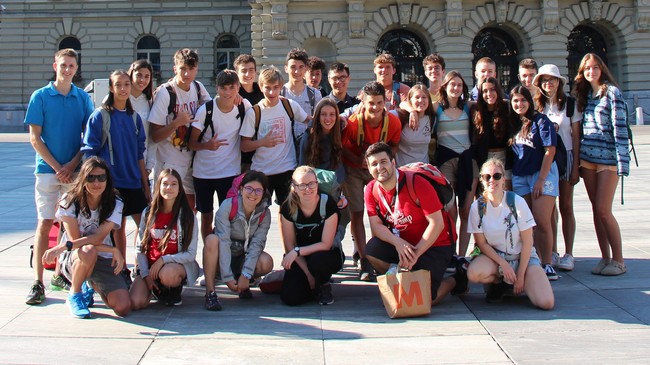
Swiss SMEs more optimistic about the future again

Small and medium-sized businesses (SMEs) in Switzerland are once again somewhat more optimistic about the future, according to a study by Raiffeisen.
+Get the most important news from Switzerland in your inbox
Specifically, 69% of SMEs reckoned that the future economic situation was good to very good. A year earlier, only 62% were of this opinion.
More than 80% also expect stable or rising sales and are less critical of issues such as inflation and energy prices, even if these factors still play a major role.
Companies from the chemical and pharmaceutical sectors, the hotel and catering industry and the construction sector – the latter possibly also thanks to the interest rate environment – are among the most optimistic. By contrast, companies from the energy and infrastructure sectors are more cautious about the future.
Meanwhile, foreign policy developments have made it into the top three risk factors. With the numerous geopolitical upheavals, the Swiss franc is increasingly coming back into focus as a safe haven. Together with the partially empty order books in certain industrial sectors, this is a “dangerous combination”, noted Roger Reist, Head of Corporate Client Business, Treasury and Trading at Raiffeisen Switzerland.
AI still being used too hesitantly
Another key topic of this year’s Raiffeisen SME study was artificial intelligence (AI). Although Swiss SMEs are still very reluctant to use AI, the majority have a neutral or positive attitude towards the technology.
+ Swiss board members found to have too little AI expertise
More than a third of those surveyed do not yet use AI and only 9% use the technology “systematically”. Only a few fear that artificial intelligence could really endanger the workforce. The human factor will continue to be important in the future, particularly with regard to creativity and the quality of decisions.
Companies are most likely to plan to use it in the areas of IT & digitalisation and marketing & sales. It is evident that larger companies are taking on a pioneering role here – also because they can more easily make the necessary investments.
Translated from German by DeepL/ts
This news story has been written and carefully fact-checked by an external editorial team. At SWI swissinfo.ch we select the most relevant news for an international audience and use automatic translation tools such as DeepL to translate it into English. Providing you with automatically translated news gives us the time to write more in-depth articles.
If you want to know more about how we work, have a look here, if you want to learn more about how we use technology, click here, and if you have feedback on this news story please write to english@swissinfo.ch.

In compliance with the JTI standards
More: SWI swissinfo.ch certified by the Journalism Trust Initiative
















![The four-metre-long painting "Sonntag der Bergbauern" [Sunday of the Mountain Farmers, 1923-24/26] had to be removed by a crane from the German Chancellery in Berlin for the exhibition in Bern.](https://www.swissinfo.ch/content/wp-content/uploads/sites/13/2025/12/01_Pressebild_KirchnerxKirchner.jpg?ver=cb688ed5)














You can find an overview of ongoing debates with our journalists here . Please join us!
If you want to start a conversation about a topic raised in this article or want to report factual errors, email us at english@swissinfo.ch.